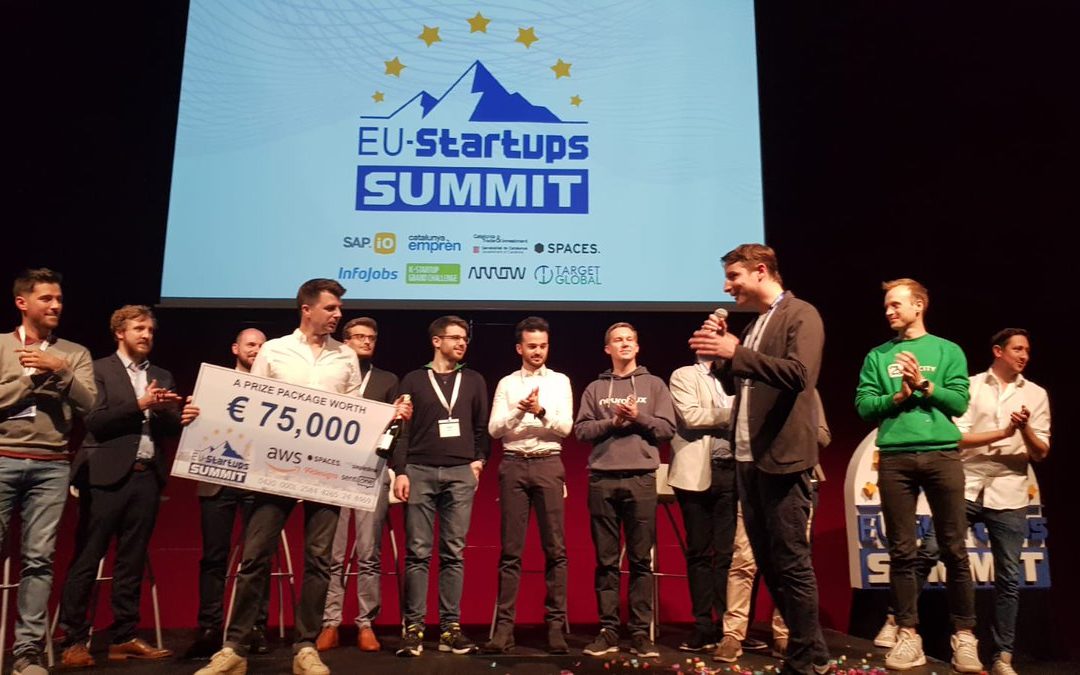The startup accelerator environment in Europe is changing.
The landscape has transformed a lot since I relocated from Silicon Valley to Europe in 2012. What was almost non-existent has become a saturated market in just a few years. Worldwide, there are 7000 startup accelerators and incubators in 2019.
With so many offers out there today, comparing programs can be confusing and overwhelming. Accelerators are having to work harder to differentiate themselves. This was evident as each panelist presented their elevator pitch to a room full of tech startups.
Even the language is shifting. According to five of Europe’s top accelerators on a panel at the EU-Startups Summit in Barcelona last week, Accelerator is becoming such an overused term, it’s losing its value.
In fact, two of these accelerators no longer call themselves accelerators.
The panelists included representatives from Wayra, APX, Next Big Thing, Startup Wise Guys, and Rockstart, headquartered in Spain, Germany, the Baltics and The Netherlands. The moderator was Cathy White, the articulate and engaging founder of CEW Communications, a London-based agency serving tech scaleups.
Here’s what we learned:
1. Sustainability wins.
Everyone spoke about the necessity of providing long-term support and capital, going well beyond what typically used to amount to a 3-month program.

Nowadays, it’s about being sustainable. It’s about managing the entire lifetime of a startup, not just the first few months.
2. When you’re applying to programs, consider the following:
- Get an introduction from someone who knows them – like a VC.
- Accelerators invest in teams. Who do you want to start your company with?
- What stage are you at? Pre-MVP or MVP? With or without traction?
- Think about the model you want to grow, and the path you want to choose
- Recognise whether you have very specific requirements
- Ask yourself what happens next – how will they support you after the program?
3. During the selection process, remember to ask questions.
The minute you apply, you are in a due diligence process with the accelerator. It’s no different than with an investor or fund. It’s surprising how few entrepreneurs ask questions during the selection process. It’s a missed opportunity, basically.
4. Show them your numbers.
- Demonstrate that your product or technology is real and validated in the market.
- Be sincere and honest – don’t inflate, but don’t leave anything out either.
5. More than anything else, they invest in teams.
- 60-70% of their assessment is personality-based.
- Even more than a great idea, they are looking for a team that can deliver.
6. Who are you? Why this? Why now?
For accelerators like APX, who are focused on the pre-seed idea stage, they want to know how strong your vision is, how well you can turn it into a hypothesis, and how well you can execute on your dreams.
7. They want someone they can trust. Start with a conversation.
Get to know each other first. Let them know who you are. Rockstart cares that you’re a nice person, and they want someone they can trust. Start with a conversation and see where it goes.
8. You need to stand out.
Wayra rejects 98.6% of its applications, and only accepts 1.4%.

According to a recent statistic from Hatcher+, only 10-30 per every 1,000 applicants are accepted to accelerators worldwide.
Their data also shows that “graduates of accelerator programs are increasingly showing up in unicorn lists … and that these companies are raising more money – and surviving and thriving longer – than non-accelerated startups”.
9. If this is your first company, experience in your industry counts.
First-time founders should have previous experience in their industry. If given the choice, accelerators will choose someone super smart, technical and very driven.
10. Be coachable.
Demonstrate that you’re realistic and coachable. Be able to listen, be aware of the challenges you have, and be open to accepting their help.
If you’re a first-time founder, being slightly naive about what it takes isn’t necessarily a bad thing – it means you’re likely to exhibit energy and passion, and can take defeat well.
It’s a social process. The right attitude is everything.
For more insights on the key things accelerators look for, listen to my podcast with Andrew Burford, Head of Entrepreneurship at Imperial College in London, who ran EIT’s Climate KIC Accelerator for many years.

Andrew successfully mentored and coached 90 CleanTech teams to raise an average of €3.38M per team, with a 75% success rate after five years.
In this segment he talks about their intake process, and the importance of being coachable, among other things.
“First you’ve got to have the right people. What we mean by that is people that are able to listen and take feedback, take advice, absorb the environment and the thoughts there within. If they’re not able to listen, then they just carry on with their idea. They don’t change it and more likely than not, they’ll make a mistake.”





